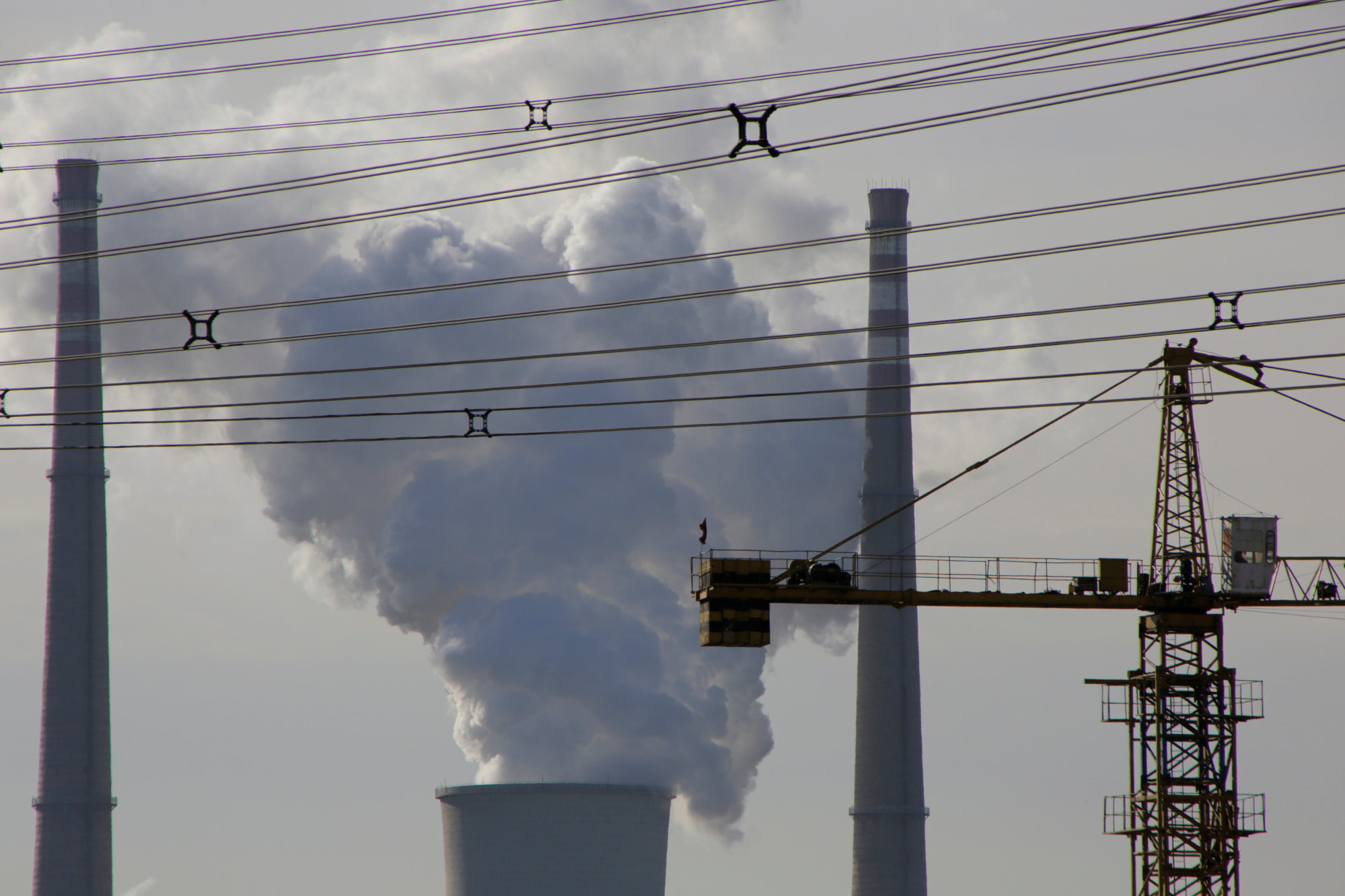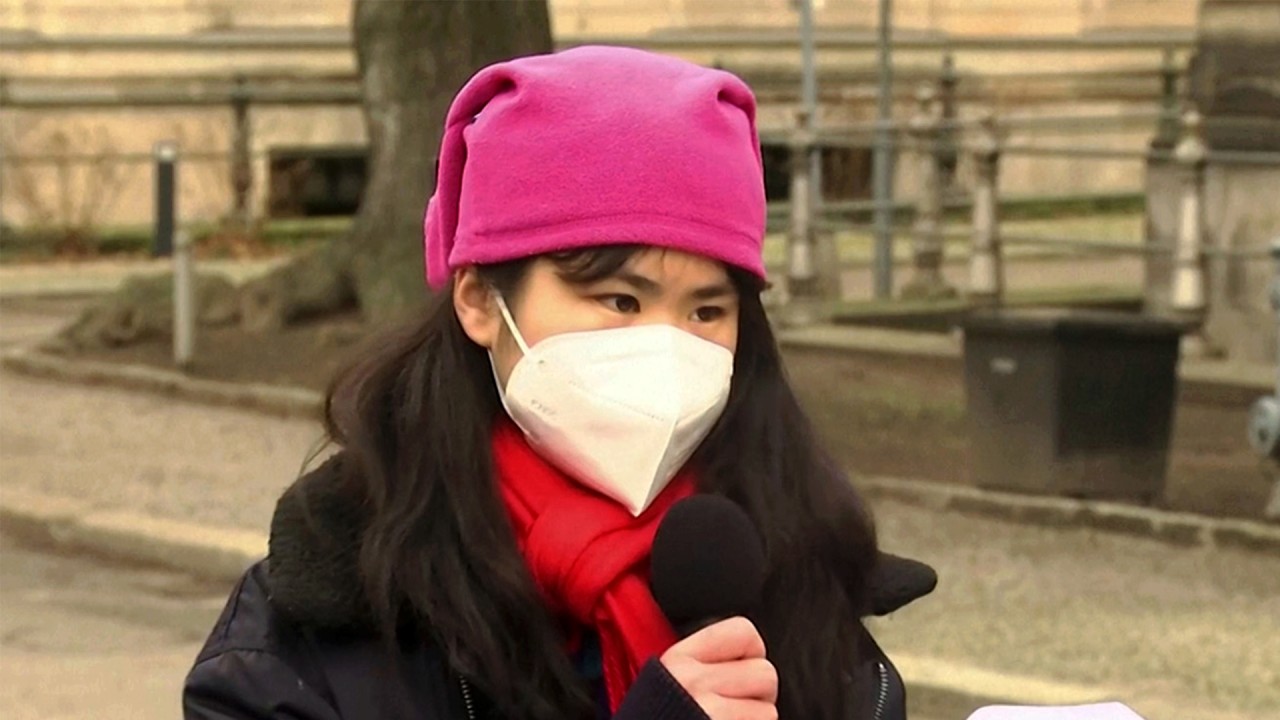
Beijing ‘hit peak carbon emissions in 2012 due to war on pollution’
- Research from ‘authoritative institute’ shows significant drop in capital’s emissions from 2013, according to People’s Daily
- Expert says Beijing was at an advantage to take action since being the capital made it easier to get policies and funding
Beijing has reportedly reached peak carbon emissions well ahead of schedule, but an environmental expert says it is an achievement other Chinese cities may have difficulty replicating.
“Beijing’s carbon emissions peaked in 2012 and because of the Clean Air Action Plan implemented in 2013, carbon emissions dropped significantly in 2014 and 2015,” according to the report on Wednesday.
It said emissions rose slightly from 2016 to 2019 due to growth in the aviation sector, but total emissions were lower than in 2012. Beijing’s energy consumption and emissions fell further last year because of the pandemic.

“Beijing’s five-year Clean Air Action Plan started in 2013, followed by a three-year action plan to protect its blue skies in 2018, which helped to adjust the city’s energy and industrial structures,” said Ma Jun, director of the Institute of Public and Environmental Affairs, an NGO based in Beijing.
Under the action plan, Beijing shut down its four coal-fired power plants from 2013 to 2016, replacing them with gas-fired power that can generate 2.6 times more electricity than coal.
It also relocated the Shougang Group, one of China’s largest steelmakers, from the west of Beijing to neighbouring Hebei province in 2005 to curb pollution and prepare for the Beijing Olympics in 2008.
More heavy polluters were relocated from Beijing to already smog-hit neighbouring provinces in the following years. That has seen a shift in Beijing to the service industry, which contributed 84 per cent of its GDP in 2020, according to official data.
After these moves, Beijing’s coal consumption peaked in 2012 at 23 million tonnes, or a quarter of the city’s energy use, according to the report. By 2020, coal use had fallen to 1.73 million tonnes, or less than 2 per cent of its energy consumption.
An improved public transport system has also helped to reduce emissions in the capital. Public transport accounted for 40 per cent of traffic in Beijing as of last year, official data shows.
Yang Fuqiang, a research fellow with Peking University’s Institute of Energy, said Beijing’s experience in reducing the use of coal, replacing coal power with clean fuels and developing its public transport system was valuable for other cities looking to cut emissions.
But he said Beijing was at an advantage to do this compared to other places in China since it was easier to get supporting policies in place and funding as the nation’s capital.
According to the People’s Daily report, Beijing will soon release an action plan for achieving carbon neutrality – something it aims to do by 2050, 10 years ahead of the national target.
Some energy experts believe China could hit peak emissions earlier than targeted, by 2025.
According to Yang’s research, eight municipalities and provinces – including Beijing, Shanghai, Jilin and Qinghai – have already got there. He expects another 14 provinces and cities to reach peak emissions by 2025. And across the country, he expects locations that together account for 60 per cent of emissions to hit their peak around 2025.
That is backed by research by the Energy Foundation China, an NGO, which found that 13 cities and provinces, which together account for 43 per cent of the nation’s emissions, had reached peak emissions. It found that another 10 provinces and cities were “close to the peak” but emissions were increasing in seven other locations.
Ma from the Institute of Public Affairs said Beijing’s progress would give other cities and provinces impetus to do more to achieve climate targets, noting that getting them to act could be a challenge.
“If some of these places don’t want to announce targets or they want to push back the period for peak emissions, you can imagine the result,” he said. “Some may also want to expand their industrial capacity before they hit peak emissions.”



